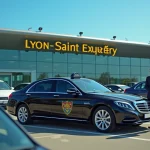Common Difficulties Navigating UK Public Transport
Navigating UK public transport poses several challenges for tourists unfamiliar with its complexity. The UK’s transport networks include buses, trains, trams, and the iconic London Underground, each with distinct payment systems. Understanding ticket options can be tricky, especially distinguishing between paper tickets, Oyster cards, and contactless payment methods. The Oyster card is a pre-loaded travel card mainly for London’s public transport, offering convenience and cost savings. However, tourists often grapple with activating or topping up these cards correctly. Alternatively, contactless payments via debit or credit cards are widely accepted but may incur foreign transaction fees, a factor visitors should monitor closely.
Moreover, tourists need to prepare for potential delays and disruptions. Strikes or schedule variations occur periodically, affecting trains and buses. Being aware of live updates and alternative routes is essential for timely travel. Additionally, the variety of fare zones, especially in London, can be confusing. Planning journeys using apps or station staff assistance helps mitigate misunderstanding.
In parallel : What Lesser-Known Attractions Make the UK a Unique Travel Destination?
By understanding the transport systems’ variety and mastering payment schemes like the Oyster card and contactless methods, tourists can confidently navigate UK public transport and avoid common pitfalls. Practical travel tips UK include purchasing travel passes in advance and checking for real-time service alerts to cope effectively with delays or strikes.
Adapting to Accents, Language, and Communication
UK regional accents vary widely between England, Scotland, Wales, and Northern Ireland. Tourists often face challenges understanding these accents, which can differ significantly even within the same country. For example, a Glaswegian accent may sound very different from a Londoner’s. This variation can lead to misunderstandings or confusion, especially when asking for directions or public transport information.
This might interest you : What Makes a UK Travel Destination Overrated?
Language barriers UK visitors encounter are usually not about English fluency but the regional slang and idioms. Common misunderstandings occur with phrases like “sorted” (meaning arranged) or “knackered” (very tired). Tourists may benefit from familiarising themselves with typical UK expressions to ease communication.
Communication tips for tourists include speaking clearly, politely asking for repetition, and using simple questions. Many transport signs and announcements are in English, but some stations also provide information in multiple languages, which helps non-native speakers. Learning a few key phrases such as “Where is the bus stop?” or “Which platform for the train to Manchester?” can significantly improve confidence navigating the system.
Being patient and open in conversations often encourages locals to assist tourists more willingly. This empathetic approach helps overcome language barriers UK travelers frequently encounter and enhances the overall experience.
Managing Cultural Differences and Social Etiquette
Navigating UK cultural norms and social etiquette can prevent misunderstandings and enrich your visit. Tourists often face challenges adapting to British public behaviour, where politeness and subtlety are highly valued. Observing unspoken rules, such as queueing patiently and avoiding loud conversations in public transport, is essential. British people tend to appreciate a respectful attitude, so a simple “please” and “thank you” goes a long way.
When it comes to tipping, a standard is around 10-15% in restaurants if service isn’t included. However, tipping in pubs is uncommon unless table service is provided. Understanding tourist behaviour UK expectations helps avoid awkward situations.
Small talk often features polite remarks about the weather or local events. Engaging briefly with locals using light, neutral topics reflects good etiquette. Recognising the reserved nature of many UK residents can help tourists approach interactions with sensitivity.
Finally, navigating pub culture requires awareness: standing in line to order and paying upfront at the bar is the norm. Knowing these nuances enhances your comfort and rapport during social encounters, making your UK stay smoother and more enjoyable.
Dealing with Weather and Seasonal Challenges
UK weather is famously unpredictable, often changing several times in one day. Tourists need to prepare for rapid shifts between sunshine, rain, wind, and cloud cover. This variability means packing versatile clothing is essential: layers help manage temperature changes, and waterproofs protect against sudden showers.
Rain is common year-round, so having a compact umbrella or a reliable raincoat is advisable. Windy conditions, especially in coastal or exposed areas, can make temperatures feel colder than they are, so windproof jackets improve comfort. During autumn and winter, daylight hours shorten considerably, affecting sightseeing plans and travel timings.
Planning around weather means checking local forecasts regularly and being flexible with outdoor activities. Tourist challenges UK often include coping with weather-related delays, such as slower transport services during storms or road closures. To manage this, travel tips UK highlight the benefit of scheduling crucial journeys earlier in the day or allowing extra time to avoid stress.
Lastly, appropriate footwear is crucial for slippery pavements or uneven terrain in rural locations. Being well-prepared for the UK climate ensures tourists enjoy their trip despite the often-challenging weather conditions.
Coping with Currency, Payments, and Budgeting in the UK
Managing UK currency is a key tourist challenge UK visitors face. The official currency is the British pound (£), distinct from the euro used in many European countries. Tourists should familiarize themselves with the coins and notes to avoid confusion when making everyday purchases. While some tourist spots accept euros, this is rare and usually comes with poor exchange rates.
Cashless payments and contactless systems dominate UK public transport and retail. Contactless cards and mobile payments like Apple Pay provide convenience but require checking with your bank about foreign transaction fees. Travel tips UK recommend informing your bank of your travel plans to prevent card blocks. Many places increasingly prefer cards over cash, so carrying some contactless payment options is advisable.
Budgeting during a UK trip entails accounting for transport fares, meal costs, and entrance fees to attractions. Using travel passes or discount cards can reduce expenses significantly. Tourists are encouraged to plan and monitor spending carefully, balancing cash and card use. Understanding payments in UK helps avoid unexpected charges and eases transactions, ensuring better control over your travel budget UK.
Visa Requirements and Post-Brexit Changes
Understanding UK visa requirements is crucial for tourists planning a visit post-Brexit. Visitors must ensure they have the correct travel documents UK authorities require. Depending on nationality, some tourists need to apply for a visa before arrival, while others may enter visa-free for short stays. Knowing your category prevents delays or refusals at border control.
Brexit travel changes have introduced stricter border checks and updated documentation rules. For example, European Union citizens now face different entry procedures, including carrying valid passports rather than national ID cards. The processing times and required paperwork have increased in complexity. Tourists should verify the latest regulations to avoid issues upon arrival.
To navigate these changes smoothly:
- Check official UK government guidance well before travel.
- Prepare all necessary documents, including proof of accommodation and return travel.
- Be aware of visa durations and restrictions to avoid overstaying.
Being proactive about travel tips UK regarding visa and border controls reduces stress and ensures a hassle-free experience. Many difficulties arise from ignorance of updated rules rather than genuine attempts to breach policies. Tourists planning ahead benefit from fewer disruptions and more enjoyable trips.
Understanding UK Driving Rules and Road Safety
Navigating UK driving customs can pose significant tourist challenges UK visitors must prepare for. One key difference is driving on the left side of the road, which can initially confuse those accustomed to right-hand driving. Signs and road markings may also vary; for instance, roundabouts require yielding to traffic from the right. Tourists should take time to familiarize themselves with these rules before renting a car UK.
Regarding renting a car UK, tourists typically need a valid driving license from their home country. Some rental companies may require an International Driving Permit alongside the original license. Checking rental agreements carefully is vital to avoid unexpected restrictions or fees.
Road safety for tourists includes awareness of local speed limits, which vary between urban (usually 30 mph) and rural areas (up to 60-70 mph). Many cities, especially London, apply congestion charges, so planning routes to avoid costly fees is advisable.
Parking regulations can be strict and confusing. Paying attention to time limits, parking zones, and payment methods reduces the risk of fines. Utilizing parking apps offers practical help.
Adopting these travel tips UK allows tourists to drive safely and confidently, minimizing stress while exploring the UK’s roads.


